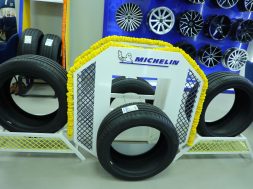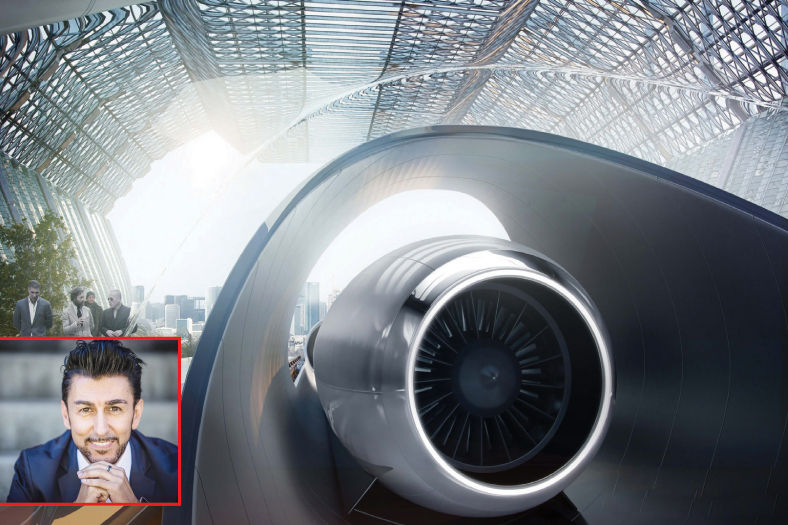FDI in multi-brand retail to promote competition
“FDI is going to bring competition and competition is always good as it enhances standards of products while keeping the price more competitive. In addition, aspects of quality, price, value, and hygiene will improve in the strive for greater market share,” said Stephen T Roberts, Chairman, Bentel Associates International in an interaction with Subhajit Roy
It’s almost 9 years you are in the Indian market, how was the journey so far and how do you find the current market situation?It has been a very good journey for us so far in India, with our locally based joint-venture partner ICS. It was through them that we ventured into Indian market on the strength of our experience in retail architecture. ICS were already involved in parking garage design and management, and sought advice from a similar operation in South Africa as to which architects could be recommended. That’s how the whole story started. So far, we have built a good brand with around 10 completed projects and another dozen confirmed, with a lot of enquiries.
Could brief us on the joint venture in detail?Our joint venture with ICS has succeeded largely due to the fact that they are not architects, but have a successful presence in the property development industry as a whole in India. The architectural venture is totally autonomous in terms of other joint ventures that ICS have. We have built up a permanent staff of around 30 local architects and technicians based in Mumbai. Our client list includes some of the most prominent property developers in India.
How much you have invested in this JV?It’s difficult to say. Our joint venture is a 50:50 partnership between Bentel Associates and ICS, and I can confirm that most of the earnings during the first few years went into building up the operation. Currently we have work orders sufficient to more than meet operation costs, and we have a positive outlook. Financial predictions are always difficult to make, since we are not selling a product, but a service, which is often the victim of unforeseen circumstances and political situations that affect the national economy as a whole.
Being an architectural firm, what kind of services do you provide?We provide full service, from master planning, through architectural design, interior design, graphic design and store planning. We are able to offer clients a one-stop architectural service, from inception through to working drawings and completion, which together with our local establishment gives us a competitive edge over other international architects. We recognised the importance of an Indian-based operation to give clients the satisfaction of dealing with us face to face. Our two separate offices in India and South Africa work closely together on all schemes to create a seamless operation. In addition to our retail expertise, we have also secured projects in other sectors, such as hospitality, commercial and residential. Most of our projects are now mixed-use developments.
As the Govt. has allowed FDI in multi-brand retail, how do you see the market is opening?I believe FDI will be a positive thing for retail industry. Whilst I sympathise with the counter-arguments, I’m not sure that opponents understand the full story. In fact there was an interesting presentation given at the India Retail Forum (IRF) that revealed FDI in other countries usually contributes not more than 12 per cent of the retail market. In all the other countries where FDI has been in operation for a long time reveals that the international companies generate business with local farmers and suppliers all down the line, and improve methods of manufacture and product development. The other thing, in terms of retail, is that it will increase the number of major tenants who can anchor retail developments.
How does FDI in retail going to make an impact on the retail real estate sector?It’s going to make a big impact. FDI is going to bring competition and competition is always good because standards increase and prices of products become more competitive. In addition aspects of quality, price, value, and hygiene will improve in the strive for greater market share.
At the moment India has limited anchors, such a Shoppers Stop, Lifestyle and Hyper City, for example. The moment you get more similar outlets, the more competition there is and developers can negotiate rentals that will assist with the overall viability of projects.
How are you planning to use this opportunity?This is not a direct benefit for us, but for our clients. It will bring a wider variety of tenants available to anchor projects, lower rentals and make projects more viable. A successful centre is one where all stakeholders benefit. The investor wants good returns, the tenants want good sales and profits, and the consumers want competitive prices with good value in a pleasant shopping atmosphere.
Are you in talk with any of the big brands who are planning to enter Indian market?We have had a good relationship with a large developer and retailer in South Africa, and few years ago when we started in the market in India, one major retailer from India asked us to introduce each other for talks on the possibility of a joint venture. The offer was at the time declined, because the competition from local traders was considered too big. But in today’s situation, I think the decision have been different, because of the way structured retail has taken off in India. For example, a great percentage of the Indian population is in the age category below 20, and with the world becoming such a global village, this new generation like the malls they see elsewhere and want them in India.
Is it same in the case of architectural profession, what kind of tradition you have experienced?Yes, if you go to the Oberoi mall, which was our first completed project in Mumbai, you see lot of activity in it. I think the mall is really a development, the old fashion market centre where people go not only for shopping, but also to meet for other activities and the mall has taken that role, but is now a more secure environment. The successful shopping mall is not simply a matter of putting together a bunch of shops and selling them off. The mall has to be successful for the developers, traders and consumer and that’s why the design of the mall has to be well planned, with good location, good access, good parking, good planning and a good tenant mix. It has been said that the more time a person spends in the shopping mall, the more she or he spends. So the idea is to bring people in the mall not only for the shopping experience but for the experience of food and entertainment that will keep them there.
Isn’t it very challenging to develop a huge project like mall where energy efficiency is also important?Energy efficiency is a major factor and with the kind of technology available in terms of lighting, air conditioning and ventilation can have a positive effect on running costs. Hopefully this kind of education will be passed on to tenants to include such considerations in their premises, as well as in the common areas.
What will be your expansion plan with the increasing activity in Indian market?We can see a lot more activity happening in the Tier 2 and 3 cities like Patna, Ranchi, Vijaywada and others. In addition, there is still room for growth in the major metropolitan areas like Mumbai, Kolkata and Delhi. Although we entered India on the strength of our retail expertise we actually have a portfolio in other sectors and I think the trend is going to be the mixed-use developments with a retail portion, hospitality or commercial portion and even residential. In Coimbatore, we are currently engaged on a project which comprises both – an enlarge shopping mall and a major high rise residential portion. We are hoping to branch out to other sectors as well.
How many projects you have executed in India till now?Somewhere up to 10 on site and we got almost a dozen complete. We have got new enquiries beyond 25. We have projects in various stages of design and/or construction in Bangalore, Chennai, Jaipur, Raipur, Patna, Ranchi and of course Mumbai.
1
Cookie Consent
We use cookies to personalize your experience. By continuing to visit this website you agree to our Terms & Conditions, Privacy Policy and Cookie Policy.






